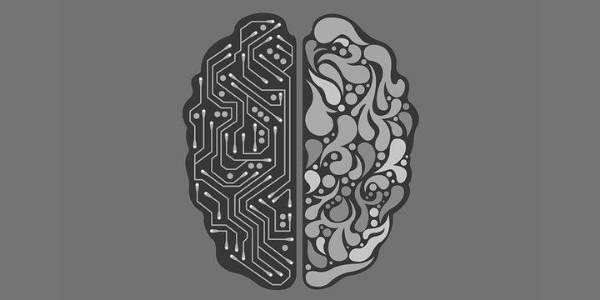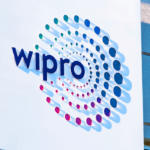To survive and thrive through the current pandemic, the job of the HR leader is of paramount importance. The level of disruption in the past five months, let alone five years, has already brought us to the brink of exploring new and exciting job descriptions, which were previously never thought of. The pandemic has accelerated the transformation of today’s workforce and HR is going to be key as we drive headfirst into the job roles of the future.
As we twist and turn through the titanic shifts in the way of work, there is increased anticipation regarding the kind of skills that will be relevant in the future. Indeed, there has been an increase in the uptake of learning courses among employees across sectors. Although one persistent fear has been that the spike in adoption of technology will lead to the loss of jobs in the future, it may be time to alleviate those fears. Already roles and functions, which were earlier thought to be futuristic — such as a ‘chatbot coach’ and a ‘head of employee experience’— are in existence today as a fusion of HR, IT, communications and marketing domains.
The human element has always been the key and no amount of automation is going to change that. Man and machine will work together to create new HR roles focussed on cooperative working. Specialised roles will come to light where managers will be responsible for creating seamless collaboration between the two elements rather than competition.
The following are five new HR roles for the future, which will stand at the intersection of machine and humans, along with details of the qualifications that may be sought in aspiring candidates who may wish to apply.
1. Algorithm bias auditor
Artificial Intelligence (AI) bias is already a real issue and in the future, the use of AI is only going to increase in areas of product development, sales analysis and recruitment. In each area, organisations will want to ensure that their AI systems are free from unwanted biases, are fair, ethical and representative of the company values. Therefore, to keep a check, organisations will require a person in executive capacity, who can lead a team to conduct methodical and rigorous investigation inot every algorithm across the business units in the organisation. Expected to be a separate profile in the next five years, the head of the algorithm bias audit (ABA) team will be responsible for tracking each significant algorithm, its objectives, input, output and understanding of the related human value judgements and consequences. In addition, this auditor will be responsible for establishing guidelines and compliance methodologies in a way that is easily understood by employees across the organisation.
Qualifications to be desired
The candidates will be expected to have prior experience in legal, compliance, technical, IT or executive management. They should be committed to diversity and interested in leveraging the benefits of technology. An understanding of modern and cutting edge IT development will be an advantage.
2. Chatbot and human facilitator
This role covers all the facets of the growing chatbot technology, for employee experience and health on one side and increasing use of voice-recognition software or command prompts across devices on the other. While chatbots are becoming more intelligent at figuring out employee needs, a human element is always desired to deliver the best in experience. The chatbot and human facilitator will leverage voice as a platform for chatbots to increase positive user experience and can be a real need for organisations in the next five years alone.
For instance, the chatbot can alert the manager in case a particular employee is feeling too ill to work; accelerate problem resolution by understanding when to escalate the situation to the right people; improve engagement and productivity by reducing rote work for HR managers. The ideal candidate will be one who is passionate about conversational interfaces in the context of HR and will be able to optimise the interface by working with voice UX designers on accents, inflections, jargon and turn-of-phrase lingo.
Qualifications to be desired
The candidates will need to have experience in designing automated solutions that use chatbots though natural-language interfaces. They will need to be familiar in the design and development of chatbots, including AI and natural language processing. In addition, they should be able to understand the nuances of other dialects and languages to help design one which will appeal to a majority of the population. This area will be key.
3. Human bias officer
Bias training, and most recently, training on microaggressions in the workplace have been doing the rounds in removing traces of unconscious bias in the workplace. However, the increasing adoption of AI and ML and other hi-tech automation, can potentially infuse biases into the workplace in new ways. To mitigate these effects and foster greater diversity, human bias officers will be needed.
These individuals will report directly to the CHRO and will be responsible for removing bias in all business functions that HR oversees. Fair treatment of employees — from recruitment to exit — irrespective of race, gender, financial status, or culture, will be their goal. Further, they will lead the overall team design of HR algorithms, working closely with the algorithm bias auditors and issue guidelines on interaction between automated systems and HR platforms.
Qualifications to be desired
Being a senior level role, the candidates will require at least 8 to 10 years of experience in ethics or bias management, a track record of managing algorithm bias auditors, especially in HR, an understanding of modern IT technology and solutions with the enthusiasm to leverage their positives.
4. Human-machine teaming manager
The goal of this professional will be to design and create augmented hybrid teams between man and machine, to deliver better business outcomes through increased collaboration between the two. In essence, in the future of work, employees and machines will be colleagues rather than technology acting as a support factor. This will lead to performance reaching entirely new heights. To make this possible, a person will be required who can look for both uniquely human capabilities and machine capabilities, and identify areas where both overlap. This will involve working with diverse teams of engineers, marketers, designers and programme managers along with being responsible for designing performance metrics for the machines as well.
Qualifications to be desired
Employers hiring for this role will be in search of highly-skilled individuals with a graduate degree in experimental psychology or neuroscience, and a relevant master’s degree in computer science, engineering or HR. In-depth understanding of human-robot interaction, machine learning and human neuroscience techniques, with an interest in corporate innovation, talent management and operations will be necessary. Any experience in consumer UI or UX design and implementation will be an added advantage.
5. Virtual reality immersion counsellor
Virtual reality (VR) has had an impact on all HR functions, from attracting candidates to training and development and helping them envision the work process. This role will essentially help the HR department design, facilitate, personalise and roll-out a top-notch workforce training and collaboration in virtual reality. Naturally, VR immersion counsellors will use VR technology to accelerate collaboration and training by working with engineering leads, training and workforce collaboration leads and technical artists. Post pandemic, collaboration through VR is going to be a viable alternative to in-person meeting and this role is expected to surface as an organisational need in the next 10 years!
Qualifications to be desired
Candidates must have more than two years of experience in facilitating corporate learning. They must be comfortable in working with diverse teams, be detail oriented problem solvers and be interested in virtual-reality technologies. Those with prior experience with immersive platforms, such as Mursion, Stivr or The Wild in the areas of development, design, delling and use, will be preferred.
Conclusion
Although the above roles may seem outlandish now, they will come into existence in one form or the other within the next ten years. As the end of this pandemic nears, it is clearer than ever that because of this global disruption in the way of work, there is no going back. Roles will be more technical, expertise across multiple domains will be in demand and no department will be capable of functioning in a silo in the future.
Only HR is capable of leading everyone through this change by steering at the helm. This is the opportunity for HR leaders to grab the baton and show the world how to navigate the future of work.
(With inputs from ‘21 HR jobs of the future’, a report by the Cognizant Centre for the Future of Work in joint partnership with Future Workplace.)
Value our content... contribute towards our growth. Even a small contribution a month would be of great help for us.
Since eight years, we have been serving the industry through daily news and stories. Our content is free for all and we plan to keep it that way.
Support HRKatha. Pay Here (All it takes is a minute)





































Thanks for this article on amalgamation of HR and AI future .. We are heading towards the same.